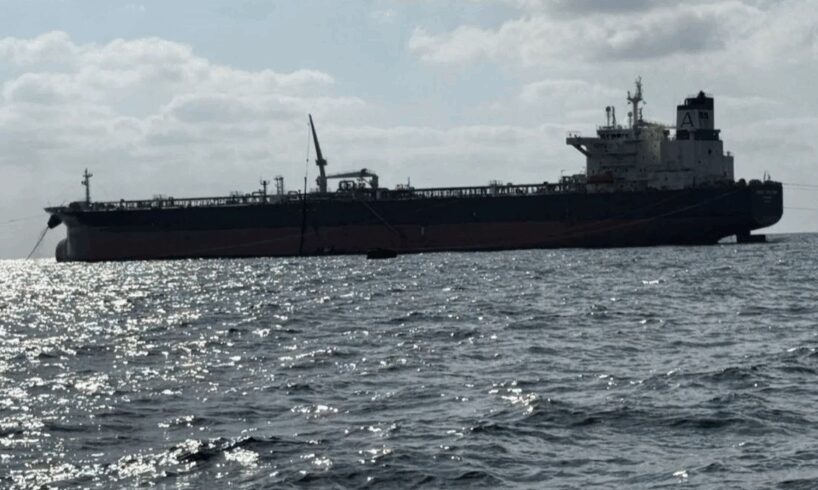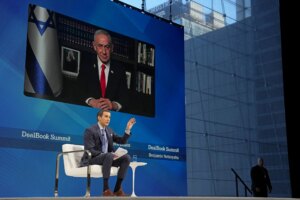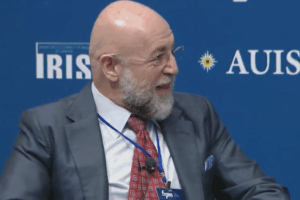
2025-09-03T11:17:37+00:00
font
Enable Reading Mode
A-
A
A+
Shafaq News
Syria has exported 600,000 barrels
of heavy crude oil from Tartus, its first official shipment in 14 years, in a
deal with the trading firm B Serve Energy. The cargo, loaded on the Nissos
Christiana tanker, underscores Damascus’ tentative re-entry into global energy
markets after the suspension of US and European sanctions earlier this year.
The milestone comes against the
backdrop of Syria’s political transition. President Bashar al-Assad, whose rule
collapsed in December 2024 after more than a decade, left behind a devastated
economy and crippled infrastructure. The Ahmad Al-Sharaa-led government that
replaced him has pledged to revive production and restore foreign trade.
A Sector Devastated By War
Syria exported around 380,000
barrels per day in 2010, just before nationwide protests spiraled into
conflict. Years of fighting splintered control of the country’s oilfields —
concentrated mainly in Deir ez-Zor, Hasakah, and parts of Raqqa and Homs — while
Western sanctions blocked formal exports. Damascus was forced to rely on
barter, opaque transfers, and smuggling to meet domestic needs.
The recent shipment, extracted from
multiple Syrian fields according to energy ministry official Riyad al-Joubasi,
marks the first time in over a decade that oil left the country under an
official framework. It follows a February deal in which Kurdish-led
authorities, who hold most of the northeast’s oil, began providing crude to
Damascus. Those ties have since frayed over disputes concerning political
inclusivity and minority rights.
Political And Commercial Openings
Analysts point to the involvement of
B Serve Energy — linked to global trader BB Energy — as evidence that Damascus
secured legal and insurance cover for the deal. This was enabled by shifting
political conditions, including a June executive order by US President Donald
Trump lifting sanctions on Syria.
The new administration has also
moved to attract international investment. In July, it signed an $800 million
memorandum of understanding with DP World to develop, manage, and operate a
multipurpose terminal at Tartus, after canceling a contract with a Russian
operator tied to Al-Assad’s former government. Moscow, once Damascus’ dominant
economic patron, has seen its role curtailed, while Gulf investors position
themselves to benefit from Syria’s reintegration.
In parallel, Syria is restructuring
its governance. On Tuesday, al-Sharaa issued Decree No. 150 of 2025,
establishing a new Ministry of Energy. The body consolidates oil, electricity,
and water under one umbrella, with legal personality and financial and
administrative independence. Based in Damascus, the ministry is designed to
streamline policy and signal to foreign investors that Syria is centralizing
oversight of its strategic sectors.
Questions Of Sustainability
Despite these openings, economists
warn that structural limitations remain. The cargo, while valued in the
hundreds of millions of dollars, still faces uncertainties over pricing,
destination, and competitiveness against Russian Urals or Arab Heavy crude.
Economic expert Firas Zain al-Din
told Shafaq News, “Is this an isolated transaction to signal Syria’s presence
in the market, or the beginning of regular shipments every few weeks? And does
the Syrian oil sector have the capacity to ramp up production amid decaying
infrastructure and the urgent need for foreign investment?”
He added that if legal and political
stability holds, Syria could export between half a million and one million
barrels every two months, easing pressure on the pound and reviving ports and
logistics. “But if sanctions pressure resumes, shipments may dwindle or revert
to barter and smuggling channels,” he warned.
Zain al-Din also noted that any
“investment leap” is a “scenario conditioned on wider political settlements,
allowing field development contracts and infrastructure rehabilitation, to
gradually restore production to tens of thousands of barrels per day.”
For now, the Tartus shipment is more
of a test case than a full economic breakthrough. Ports and refineries have
regained some activity, but the sustainability of exports hinges on whether
Damascus can build durable institutions, attract capital, and insulate its
trade from renewed international headwinds.
Written and edited by Shafaq News staff.





